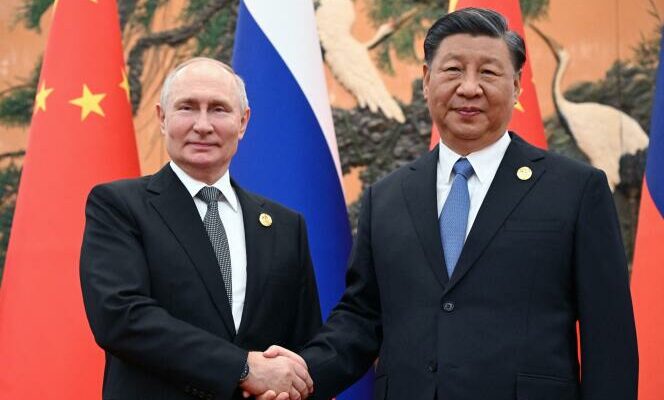Lhe tsars of Russia, who always saw themselves as the heirs of the Byzantine Empire, adopted its emblem of the double-headed eagle. One looks west, the other east. Vladimir Putin is pursuing the same dream, which for the moment boils down to war in the West and trade in the East.
On the West side, Thursday March 7, the shareholders of the company Yandex, based in the Netherlands and listed on the American Nasdaq Stock Exchange, vote on the sale of their main Internet activity in Russia, the main search engine in the country (the Russian Google ), but also taxi booking, delivery or shopping.
All of this represents 95% of the company, and the sale is forced by circumstances. The buyers, Russian management supported by a subsidiary of the oil giant Lukoil, bought everything at half price, for 5.2 billion dollars (4.8 billion euros). And payment to shareholders outside Russia will be made… in yuan.
Because Moscow is becoming increasingly Sinicized. If Russia can recover a few nuggets, like Yandex, and has great expertise in computing and networks, it does not have the means, particularly material, to develop its infrastructure alone to build a sovereign Internet, image of that of the Middle Kingdom. And this is true in all areas.
Great investment plan
This is why Vladimir Putin announced, on February 29, a major investment plan aimed at modernizing his famous railway lines which go to China. There are two of them. The legendary Trans-Siberian Railway and Baikal-Amur, further south. In all, nearly 15,000 kilometers of rails across the steppes of central and eastern Asia to Vladivostok, on the edge of the Pacific.
An ideal route for moving Russian aluminum and coal in one direction and Chinese manufactured goods in the other direction, including tanks and missiles. The project is to invest around thirty billion euros by 2032, according to the Bloomberg agency, in order to increase transport capacity from 150 million tonnes currently to nearly 250 million tonnes.
But the game, here too, was not won for the Russian tsar. For the moment, the goods taking this train cannot fill all the available capacity. Additionally, China’s need for coal is expected to soon decline with the ongoing decarbonization of its electricity production.
Finally, Russia is not sure of having the financial means necessary for this adventure. And, for the moment, the Chinese “new silk roads”, which are pushing towards the west, do not plan to pass through greater Russia, too small a market in the eyes of Beijing. The dragon is careful not to overfeed the two-headed eagle.
